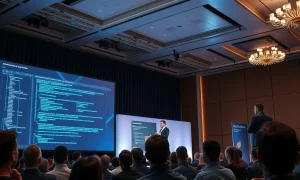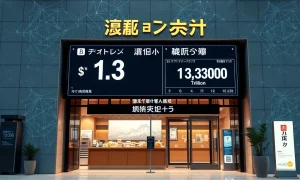Japanese enterprises face mounting pressure to modernize operations amid aging demographics and labor shortages. Consequently, LayerX emerges as a transformative solution, securing $100 million in Series B funding to accelerate back-office automation across Japan’s corporate landscape.
Breaking Through Digital Transformation Barriers
Despite widespread digitalization efforts, Japanese companies struggle with implementation. Specifically, only 16% of digital transformations succeed overall. Traditional industries face even greater challenges with success rates between 4-11%. The primary obstacles include:
- Weak leadership commitment to technological change
- Rigid organizational culture resistant to innovation
- Shortage of digital talent to drive transformation
LayerX addresses these challenges directly through its comprehensive back-office automation platform.
LayerX’s Comprehensive Back-Office Automation Suite
The startup offers three core solutions that revolutionize enterprise operations. First, Bakuraku automates corporate spending workflows for over 15,000 companies. This platform handles expense management, invoice processing, and corporate card operations seamlessly. Second, Alterna provides retail digital securities investment capabilities. Third, Ai Workforce leverages generative AI to streamline workflows and harness enterprise data effectively.
Record-Breaking Funding and Growth Trajectory
LayerX’s $100 million Series B round, led by Technology Cross Ventures, represents significant market validation. This investment marks TCV’s first Japanese startup investment. Additionally, MUFG Bank, Mitsubishi UFJ Innovation Partners, and JAFCO Group joined the round. The total funding now reaches $192.2 million. The company achieves remarkable growth metrics:
- Customer base expanded from 10,000 to 15,000 between February 2024 and April 2025
- Employee count grew from 220 to 430 within two years
- Projected to reach $68 million revenue faster than any Japanese SaaS company
Founder’s Vision and Market Differentiation
CEO Yoshinori Fukushima identified Japan’s paper-based invoice processing as a critical bottleneck. His background in machine learning and previous success with Gunosy informed LayerX’s development. The platform differentiates through AI-native user experience and continuous feature upgrades. Key differentiators include auto-entry, document splitting, and AI-enabled business process outsourcing.
Competitive Landscape and Future Outlook
LayerX competes with domestic players like Money Forward Cloud Keihi and global solutions including SAP Concur and Rippling. The company targets $680 million in annual recurring revenue by 2030. Half of this revenue should come from AI agent business expansion. Workforce growth plans include reaching 1,000 employees by 2028.
Frequently Asked Questions
What specific problems does LayerX solve for Japanese enterprises?
LayerX addresses paper-based processes, manual data entry, and inefficient back-office operations through comprehensive automation solutions.
How does LayerX’s AI technology differ from competitors?
The platform offers AI-native user experience, continuous automation feature upgrades, and integrates AI agents with business process outsourcing capabilities.
What industries benefit most from LayerX’s solutions?
Traditional industries with extensive paper-based processes and large back-office operations see the most significant efficiency improvements.
How quickly can enterprises implement LayerX’s automation solutions?
Implementation timelines vary but the platform design emphasizes rapid deployment and minimal disruption to existing operations.
What makes Japan’s market particularly suitable for back-office automation?
Aging demographics, labor shortages, and 2023 e-invoicing regulations create urgent need for digital transformation in Japanese enterprises.
How does LayerX ensure data security and compliance?
The platform incorporates enterprise-grade security measures and maintains compliance with Japanese financial regulations and data protection standards.








